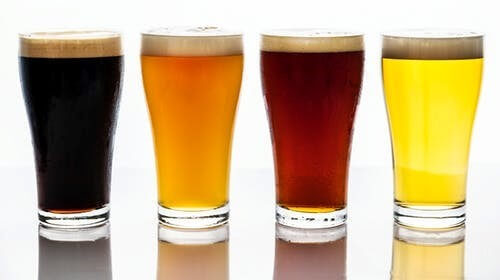
When it comes to effective beer filtration it is of paramount importance to ensure your filtering system encompasses a sanitary approved filter vessel and filters that are FDA approved to meet food and beverage regulations. No matter what the contaminant is, it can be removed effectively and efficiently as long the correct choices are made in the design stage of the system. This could be a large-scale project for larger breweries or a small compact system for the homebrew specialist who wants to take the time to produce a quality product.
Brewing is a controlled natural process that creates by-products that are both necessary and those that are unwanted. Choosing an adequate filtration system can remove unwanted contaminants and organisms. We can work with your process conditions to ensure a filter system can achieve the desired results and provide a quality product that is not only visually pleasing but also taste great.
Filtered beer refers to any ale, lager, or fermented malt beverage in which the sediment left over from the brewing process has been removed. Ancient techniques included the use of straw mats, cloth, or straws, and frequently left some sediment in the drink. Modern filtration, introduced at the end of the 19th century, uses a mechanical process that can remove all sediment, including yeast, from the beer. Such beer is known as bright beer and requires force carbonation before bottling or serving from a keg. In the United Kingdom, a beer which has been filtered in the brewery is known as "brewery-conditioned", as opposed to unfiltered cask ales.
Beer filtration is also common on a small scale. It is not uncommon for homebrewers (those who brew their own beer at home, often in small batches around 5 US gallons (19 l)) to filter their own beer. While they lack the sophisticated equipment of large-scale breweries, they can achieve satisfactory results using canister filters with successive, replaceable filter cartridges or pads. Most homebrewers will only filter their beer down to 5 µm to remove the majority of yeast and sediment, although some may filter their beer down to 1.0 or 0.5 µm. Filtering finer than this introduces risk of removing flavor and beneficial compounds in the final product. At the end of the day, you want to produce a beer that has the clarity of a commercially brewed product without the haze seen in many un-filtered brews. This needs to be achieved while ensuring you maintain the flavor of your particular brand.
At the end of the day, let’s make sure your filtering process provides an end product that you are proud to offer and tastes great at the same time. This unique process will be part of your successful brand of beer. Still, there’s a huge difference between the appearance of a commercial, stripped lager and that hazy homebrew that refuses to clear on its own. Many brewers would prefer something just a little cleaner looking and would prefer not to wait for months for the last particles to settle out on their own. It’s especially satisfying to serve a glass of your own beer that has the color, head, aroma, and clarity of a fine commercially brewed product and PS Filter® would welcome the opportunity to work with your process to create such a masterpiece.
Request Information
As an Energy Industry Professional Neil has a well-rounded knowledge of what it takes to effectively produce oil and gas to maximize the benefit. For the past 34 years working in the Oil-Patch, Safety and Environmental Protection has always been important to Neil and his associates. Neil feels Energy Companies and the Industry have come a long way to do things better and safer while continuing to contribute to a Global Economy and continues to look at the future with a positive attitude.